Exodus 32
Read the Text
KJV
King James Version
NRSV
New Revised Standard Version
NIV
New International Version
LEB
Lexham English Bible
HEB
Hebrew Bible
ASV
American Standard Version
NET
New English Translation
Summary
While Moses is upon the Mount communing with the Lord, Aaron constructs a golden calf for Israel to worship. Moses is furious with the Israelites’ immediate rebellion and breaks the stone tablets. Moses makes intercession for the Israelites.
| KJV | JST |
|---|---|
| (1) And when the people saw that Moses delayed to come down out of the mount, the people gathered themselves together unto Aaron, and said unto him, Up, make us gods, which shall go before us; for as for this Moses, the man that brought us up out of the land of Egypt, we wot not what is become of him. | (1) And when the people saw that Moses delayed to come down out of the mount, the people gathered themselves together unto Aaron, and said unto him, Up, make us gods, which shall go before us; for as for this Moses, the man that brought us up out of the land of Egypt, we know not what is become of him. |
| (12) Wherefore should the Egyptians speak, and say, For mischief did he bring them out, to slay them in the mountains, and to consume them from the face of the earth? Turn from thy fierce wrath, and repent of this evil against thy people. | (12) Wherefore should the Egyptians speak, and say, For mischief did he bring them out, to slay them in the mountains, and to consume them from the face of the earth? Turn from thy fierce wrath, and thy people will repent of this evil. Therefore come not thou against them. |
| (14) And the Lord repented of the evil which he thought to do unto his people. | (14) And the Lord said unto Moses, If they will repent of the evil which they have done, I will spare them and turn away my fierce wrath. But behold, thou shalt execute judgement upon all that will not repent of this evil this day. Therefore see thou do this thing that I have commanded thee, or I will execute all that which I had thought to do unto my people. |
| (23) For they said unto me, Make us gods, which shall go before us: for as for this Moses, the man that brought us up out of the land of Egypt, we wot not what is become of him. | (23) For they said unto me, Make us gods, which shall go before us: for as for this Moses, the man that brought us up out of the land of Egypt, we know not what is become of him. |
| (35) And the Lord plagued the people, because they made the calf, which Aaron made. | (35) And the Lord plagued the people because they worshipped the calf which Aaron made. |
Commentary
Bible Central Commentary
These free resources were developed for use in the free ScripturePlus app. Many of the contributors are professors of religion and ancient scripture at Brigham Young University.
Historical Commentaries
Many of the commentaries below are in the public domain and were authored over 100 years ago. In many cases, they do not reflect the findings of modern scholarship, but they may be helpful for understanding the history of biblical scholarship.
Videos
Watch selected videos on this chapter of the Bible to enhance your study. Note: Not all videos included come from a Latter-day Saint perspective. Inclusion on this list should not imply endorsement for all content.
Modern False Idols (Exodus 32)
Book of Mormon Central
Parallels Between the Golden Calf and the Fall (Exodus 32)
Book of Mormon Central
Overview: Exodus 19-40
BibleProject
The Book of Exodus - Part 2
BibleProject
Historical Settings
Time
*All Dates Are Approximate, according to the narrative of the Bible. These dates may reflect literary significance as opposed to the precise dates of history.
See Biblical Chronology- 1446 BC
Further Reading
Amy B. Hardison, “Theophany on Sinai,” in Ascending the Mountain of the Lord: Temple, Praise, and Worship in the Old Testament, ed. Jeffrey R. Chadwick, Matthew J. Grey, and David Rolph Seely (Salt Lake City: Deseret Book; Provo, UT: Religious Studies Center, Brigham Young University 2013), 218–31.
George A. Horton Jr. “Insights into Exodus, Leviticus, Numbers, and Deuteronomy,” in The Joseph Smith Translation: The Restoration of Plain and Precious Things, ed. Monte S. Nyman and Robert L. Millet (Provo, UT: Religious Studies Center, Brigham Young University, 1985), 71–88..
L. Michael Morales, “The Tabernacle: Mountain of God in the Cultus of Israel,” in Ancient Temple Worship: Proceedings of The Expound Symposium 14 May 2011, ed. Matthew B. Brown, Jeffrey M. Bradshaw, Stephen D. Ricks, and John S. Thompson (Orem, UT: The Interpreter Foundation; Salt Lake City: Eborn Books, 2014), 27–70.
Donald W. Parry, “Sinai as Sanctuary and Mountain of God,” in By Study and Also by Faith, ed. John M. Lundquist and Stephen D. Ricks, 2 vols. (Salt Lake City: Deseret Book; Provo, UT: FARMS, 1990), 1:482–500.
John S. Thompson, “The Context of Old Testament Temple Worship: Early Ancient Egyptian Rites,” in Ascending the Mountain of the Lord: Temple, Praise, and Worship in the Old Testament, ed. Jeffery R. Chadwick, Matthew J. Grey, and David Rolph Seely (Salt Lake City: Deseret Book; Provo, UT: Religious Studies Center, Brigham Young University, 2013), 156–183.
Bruce T. Verhaaren, “Ten Commandments,” in Encyclopedia of Mormonism, ed. Daniel H. Ludlow, 4 vols. (New York: MacMillan Publishing, 1992), 4:1469–1470.
John W. Welch and Greg Welch. 1 Nephi and the Exodus (Provo, UT: FARMS, 1999).

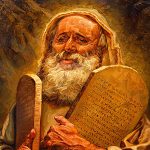
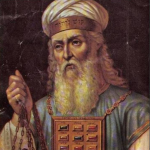
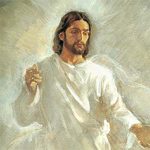
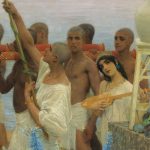
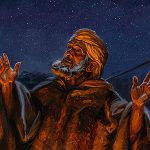
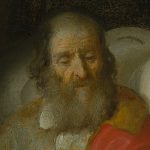
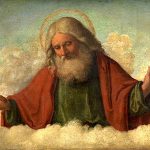

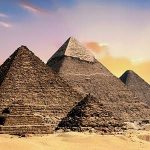

Complete Commentary on the Whole Bible
Matthew Henry (1706)
Commentary on the Bible
Adam Clarke (1831)
Expository Notes of Dr. Thomas Constable
Thomas Constable
Rashi’s Commentary
Rashi (Shlomo Yitzchaki)
Notes on the Bible
Albert Barnes (1834)
Exposition of the Entire Bible
John Gill (1746–63)
Biblical Commentary on the Old Testament
Carl Friedrich Keil and Franz Delitzsch (1857–78)
Explanatory Notes on the Whole Bible
John Wesley (1754–65)